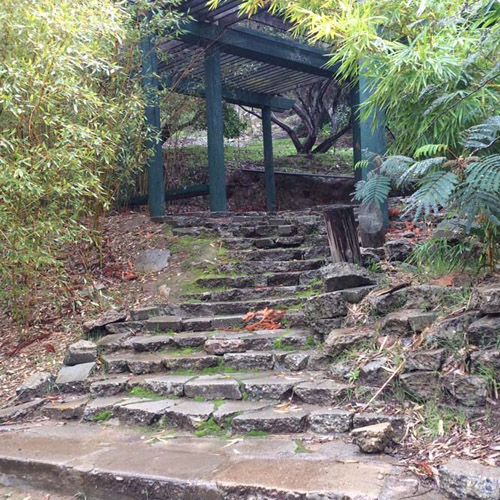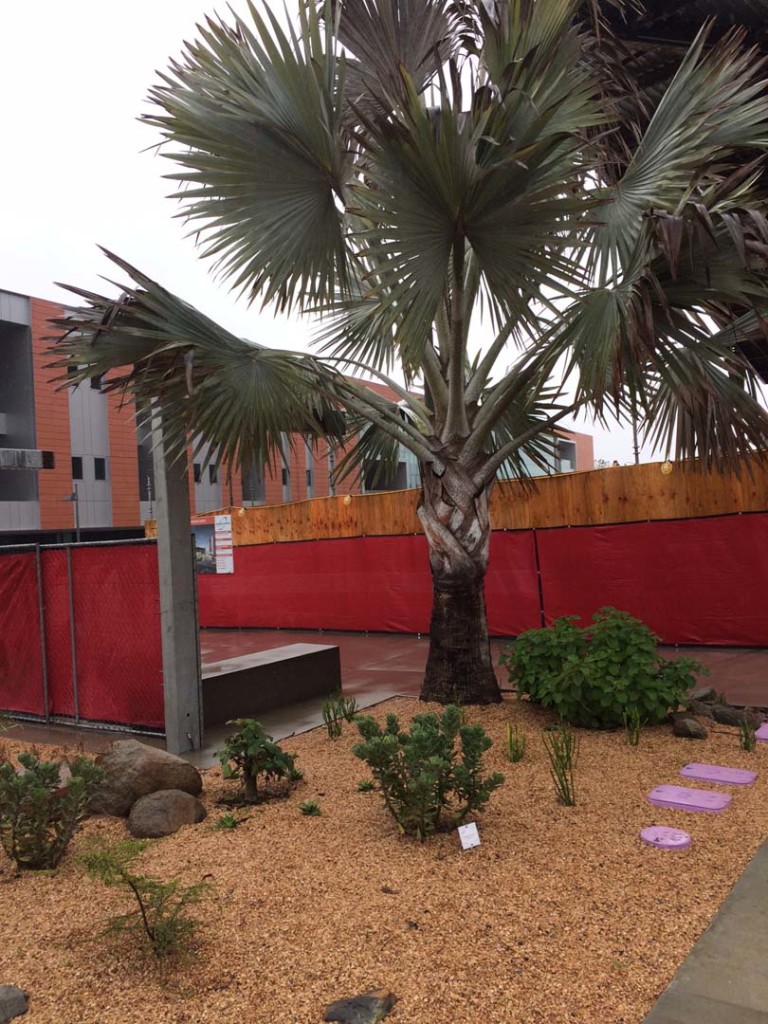Where the Learning Things Are - The Coast News Group
by David Llanes | Jan 19, 2017 | Landscape, Landscape Architecture, Landscaping
Palomar College’s trees, plants and other flora have brought the campus into the green thumb spotlight.
SAN MARCOS — The transformation of Palomar College over the decades has not just been reserved to brick-and-mortar construction. Over the years, the campus has become home to one of the most unique collections of trees, plants and other flora — a fact that often goes unnoticed by students and faculty alike as they hustle to and from the newly fabricated buildings. Recently, however, the campus’ greenery
Recently, however, the campus’ greenery received a prestigious certification, as Palomar College was recently certified as a Level II Arboretum by the ArbNet Arboretum Accreditation Program. Palomar College is the only community college to achieve the recognition, and one of only two college campuses statewide to achieve the designation, with UC Davis being the other.

What makes the designation significant is that while the college does have an arboretum — the Edwin and Francis Hunter Arboretum flanks the campus’ northeast side — this designation encompasses the 200-acre San Marcos campus in its entirety.
“The fact that the entire campus is recognized as an arboretum… is very exciting,” said Joi Lin Blake, Palomar College superintendent/president. “This is a notable distinction that places Palomar as a leader in the county.”
Below the freshly minted two-story and three-story buildings that have dotted the campus as part of the decade long building campaign, grounds services crews have created a lush landscape of plants from all across the world.
A recently completed Polynesian garden Teaching and Learning Center contains exotic palms, screw pines, sweet potatoes, and banana trees set against the backdrop of a faux-lava rain water feature.
Nearby, a garden of plants from Madagascar adorns the side of another building, with native, drought tolerant California landscape woven throughout.
Towering bamboo and palms adorn the official arboretum and its stone pathways. And acres of coastal sage scrub set the backdrop for the college’s new baseball stadium.
The collections and gardens — there are 31 different themed gardens throughout the campus — have been cultivated and cared for over the decades by previous landscapers, arborists and grounds crews.
Tony Rangel, the college’s current grounds services supervisor, said the certification is the culmination and recognition of that work, and speaks to the educational value of the collection, which he said teaches valuable lessons about conservation, proper landscaping techniques and appreciation of and awareness of endangered species.

"Arguably Palomar College has one of the greatest concentrations of plant diversity on public display within a relatively small area in San Diego County, rivaled only by Balboa Park, the San Diego Zoo and Safari Park and San Diego Botanical Garden,” says Tony Rangel, the college’s current grounds services supervisor. Photo by Aaron Burgin"
“We had an opportunity to basically make it a more formal effort, and solidifying the value of the collection to the community, and to show the community that we are not just growing a bunch of cool and interesting plants because we can,” Rangel said. “We are doing it as an educational opportunity.
“An arboretum is a living museum, and you go to a museum to learn, so that’s pretty much tied into the fact that this is an institution of learning, and since we have to beautify the campus anyway, let’s do it in a way that offers the community, staff and faculty an opportunity to teach and a way to learn,” Rangel said.
As the campus grows and diversifies over the coming years, Palomar will continue to show that we recognize and are committed to treating our botanical gems as ambassadors for conservation.”
Rangel further stated, “The arboretum certification allows the college to work more closely and efficiently on plant-based conservation and education projects with other like-minded institutions from across the country and the globe. The certification demonstrates that the plants on campus are more than landscaping — they are part of a classroom, teaching visitors about the importance of landscaping responsibly with non-invasive plants, native plants and plants adapted to our climate.
“Arguably Palomar College has one of the greatest concentrations of plant diversity on public display within a relatively small area in San Diego County, rivaled only by Balboa Park, the San Diego Zoo and Safari Park and San Diego Botanical Garden,” Rangel said. “It really speaks to the commitment of the college to striking the balance of bringing in plants that not only complement the building, but also benefit us in the areas of conservation, education and environmental stewardship.”
For Level II accreditation, ArbNet requires that institutions have, among other things, an up-to-date database with a minimum of 100 woody plants and that a plant collection policy must be in place and collections defined. Palomar has more than 300 plants labeled and hundreds of species of seeds, including for several endangered plant varieties.
ArbNet offers four levels of certification, with Level 1 being the lowest and Level 4 being the highest.
Rangel said the variety of gardens also provides educational experience for he and his crew, as like alchemist they seek to find the harmonious balance of native and non-native species that teem together across the campus.
“Sometimes we succeed, other times we learn that two plants can’t co-exist in the same ecosystem,” Rangel said, leading a tour of the various gardens on a rain-soaked day. “We catalog it, make notes of it and work to do better. We are always learning.”